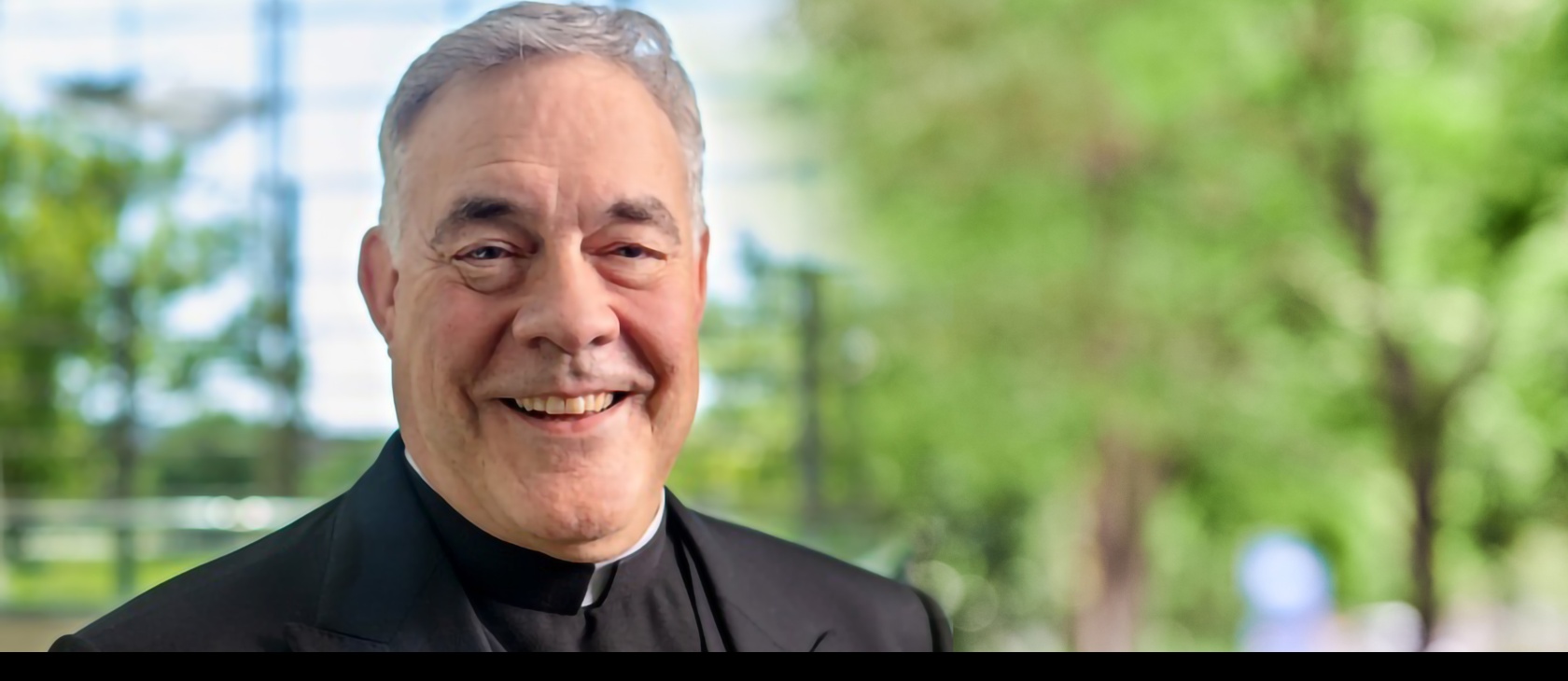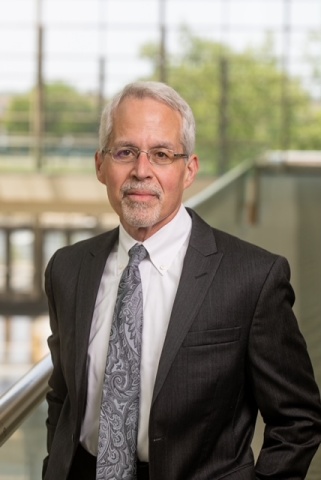Rev. Robert A. Sirico is president emeritus and the co-founder of the Acton Institute. His writings on religious, political, economic, and social matters are published in a variety of journals, including the New York Times, the Wall Street Journal, Forbes, the London Financial Times, and National Review. Fr. Sirico is often called upon by members of the broadcast media for statements regarding economics, civil rights, and issues of religious concern, and has provided commentary for CNN, ABC, the BBC, NPR, and CBS’ 60 Minutes, among others.
The Acton Institute, publisher of this magazine, has a mission “to promote a free and virtuous society characterized by individual liberty and sustained by religious principles.” What was the spark that motivated you and Acton’s current president, Kris Mauren, to say back in 1990: “We need to do this, and we need to do this now”?
I suppose it was what we saw around us at the time, especially within the moral debates of the free economy and moral and social responsibility. Almost all arguments about things like markets and profits have a moral component. What was frustrating then, as it remains to this day, is that people see the importance of moral and social obligations but fail to see that human freedom is a necessary prerequisite to achieve both the moral and practical goals people desire. That is why Kris came up with the descriptor of the Acton Institute’s mission as the connection of good intentions to sound economics.
When people think about the church and economics, they usually assume charity, welfare, redistribution—not entrepreneurship and free markets. In an article for Jacobin magazine, Eastern Orthodox theologian David Bentley Hart recently made the case that “the New Testament, alarmingly enough, condemns personal wealth not merely as a moral danger, but as an intrinsic evil.” In your book The Economics of the Parables, however, you argue that “the creation of wealth requires a society that rewards rather than penalizes productivity” and that “wealth has potential.” In the 34 years that Acton has been around, is reorienting people’s thinking about money and their faith still a hill to climb?
I think Dr. Hart’s argument was well placed in a magazine named after the Jacobins—given the ruthlessness of the Jacobins’ efforts along the lines of Robespierre at the time of the (ferociously anti-religious) French Revolution. I say this because the choice is essentially between human freedom and coercion.
Human creativity and productivity (which might also be described as “profit-making”) are not only natural impulses but also, as we see from the creation account in Genesis, calls from God to tend and till the Garden in which God has placed humanity. The results of that productivity can be good or bad depending on the way it is engaged or the use to which the profits are put, but there is no theological or biblical reason to assert that wealth per se is evil, which is why virtually no theologians agree with Dr. Hart’s simplistic position.
I make the point in my book on the Parables that when Jesus calls the rich young ruler in Luke’s Gospel to give to the poor (Jesus never says give everything to the poor), he first tells him to “go and sell” what he has. If the Lord had a disdain for wealth or profit-making, he would not have sent the man to the market to sell things. He would have just told him to immediately give it away. The introduction of selling into the command indicates a link between profitability and service: if the man makes more on the sales of his possessions, he can do more good with the proceeds.
You talk often of making connections. Acton University, the FAVs, and the Collins Center for Abrahamic Faiths obviously do that to an extraordinary degree. In your experience, when people from different countries, religions, socio-political backgrounds come together to discuss significant issues, do you find they have more in common than even they would have guessed, especially in these incredibly divisive times?
The setting or context is important to make that happen. By this I mean that we don’t seek to gather diverse people together and then tell them their diversity doesn’t matter. Sometimes the differing beliefs that people hold are even more important than the reason we gather. For me as a Christian, I would have to say that my belief in the Trinity is of a higher order than economic questions, even if my Jewish or Muslim interlocutors are not Trinitarians. But that need not stop us in a common pursuit of what economic arrangements are best suited to ameliorate poverty. So, if we are honest and clear about our goals, I think it can be a very enriching, informative, and productive encounter.
At Acton University 2024, you interviewed UFC fighter Renato Moicano and you both agreed that most MMA fans seem to have conservative instincts—perhaps it’s an attraction to competition and struggle. And yet Moicano noted that, as much as he likes free markets and liberty, “religion is the most important thing.” That doesn’t seem to be the case for a growing number of Americans who are looking for meaning in politics—and yes, even sports fandom. What advice would you offer to, say, your fellow clergy to help them in re-evangelizing the culture?
I must say that my conversation with Mr. Moicano was one of the more interesting interviews I have conducted. I know next to nothing about the whole world of MMA, but I have always been a very curious person, so it was a great opportunity.
I think curiosity and a certain open-mindedness are first steps in re-evangelizing a culture drifting so far from God. My approach with people, whether it is a pastoral encounter or a broader cultural engagement like my interview with Mr. Moicano, is to listen first. That is the only way you can find some common reference point from which the conversation can be deepened. Evangelists and missionaries do this all the time when they learn the language of the people they wish to witness to.
I see that this is precisely what St. Paul does in his sermon at the Areopagus in Athens. We read that the apostle toured the pagan holy sites and discerned the intentions of the people to seek some knowledge of God, and so we detect that he obviously had done some preparation, as is evident when, in the course of his remarks, he makes reference to one of their poets and even quotes the poet to them, linking it to his own message of the one, true God. If you read the entire episode in Acts 17, you can feel Paul’s openness to these people and an interest in their beliefs and how even those pagan beliefs might provide the seeds of Christian belief if teased out and cultivated. He is not defensive; he is loving and confident.
To be clear, I am not advocating what all too many contemporary religious evangelists do, which is to water down the demands of the gospel or to conform the gospel to something it is not. As someone once remarked, “We cannot be so open-minded our brains fall out.” No, we seek to propose the gospel, not impose it.
Your brother, Tony Sirico, who passed away two years ago, was an actor who over several decades worked with A-list directors and was perhaps best known as Paulie Walnuts on The Sopranos. A man who was famous as “the bad guy” and the Catholic priest—it’s almost something out of a Jimmy Cagney movie. Did you guys get a kick out of this, and did you ever talk about how your lives played out? What influence do you think you had on each other?
My brother Gennaro (we used to call him Junior, as my father’s name was also Gennaro) was about 10 years my senior, so we really grew up separately. I was the youngest, and in very many ways, as you might imagine, different from him. Yet we lived in the same household and regularly stayed in touch even once we had grown up.
It was Junior (or Tony) who drew the connection between the similar trajectory of our lives and the James Cagney movie Angels with Dirty Faces. We both laughed at that, and he remarked that it was funny how life sometimes imitates art.
For a long time, before our respective lives took shape, I think we saw one another as very exotic creatures—we were very different from one another. He largely grew up on the streets of Brooklyn, and I was more bookish and interested in religion. Yet we were deeply connected. My brother was very traditional and an intense believer in family, but for some time it seemed to me that he expected I treat him as my older brother (which, of course he was) and not just a brother. I wasn’t completely aware of that expectation until my own maturation. By that time, both of us were beginning to come into our own, so to speak. He began to make connections in film and television, and I was ordained a priest and soon after founded the Acton Institute. Pretty soon I began to appear more on TV and in print, and people would call his attention to this. I guess that made him think I wasn’t a kid any longer. He even became a donor to the Institute. Of course, I watched all his movies (some cringe-worthy), and he would inevitably call me after seeing an article or and interview on TV. I was invited to numerous Sopranos events, including filming and correspondence with David Chase about his handling of Catholicism. He ended up asking me to appear on the show, which I declined.
In the end, my brother and I grew very fond of one another, and I was privileged to hear his last confession and celebrate his funeral Mass.
Fun Questions:
(a) What book(s) have you read at least three times, and why?
I do not tend to re-read many books, even ones I find valuable (other than plays or poetry, particularly Shakespeare and Robert Browning), but when I discover a valuable book, I tend to come back to it time and again to re-read points made, phrases employed, or chapters or characters in order to study them at greater depth. Among these I would include Ronald Knox’s Enthusiasm (lessons on balance and the importance of both the charismatic and institutional elements of faith); Evelyn Waugh’s Brideshead Revisited (for its portrayal of the subtlety and patience of God’s beckoning of people); Alessandro Manzoni’s The Betrothed (so much to be learned about love and perseverance, the brilliance of simplicity, the potential for conversation and economics, the bread strike is well described, as is the extreme reaction to a pandemic); Ludwig von Mises, Socialism (probably the best takedown of the social conceit in history); anything by John Henry Newman (for style and depth).
(b) If you could blow up one public building, à la Howard Roark in The Fountainhead, without endangering life or risking imprisonment, which one would it be?
I am not given to blowing up buildings, but if you mean departments of government, I would immediately and without a second thought close: the IRS, the Department of Education, the Department of Health and Human Services and phase out a few more … to begin.
(c) What’s your favorite B&W film, and why?
Would the Wizard of Oz count (as it began in black and white and went to color once Dorothy landed over the rainbow)?—to remember there was once innocence and fantasy in the world; The Longest Day, because it reminds us of bravery and the cost of freedom; Angels with Dirty Faces, because it reminds me of my relationship with my brother.




